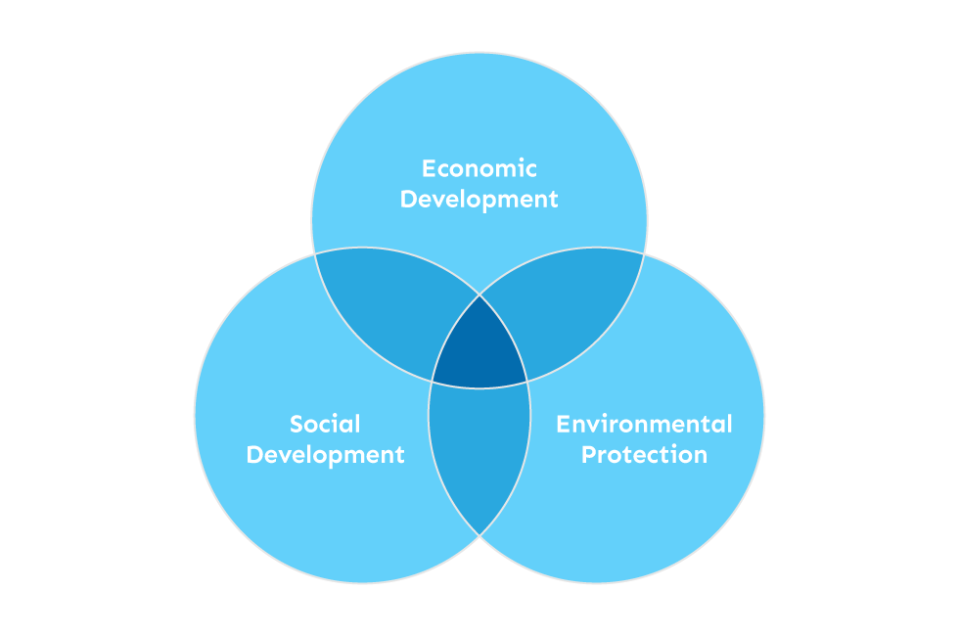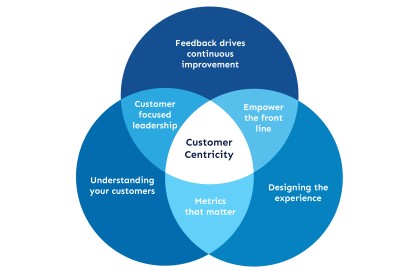Sustainable development has gained significant attention in recent years as the world faces environmental challenges, social disparities, and economic uncertainties. In this article, we explore the importance of sustainable development, its various dimensions, challenges, and its crucial role in shaping organizations and societies. Sustainable development isn't just a trendy term; it's a guiding philosophy that acknowledges the interdependence of our world. It recognizes that environmental harm can disrupt economic stability, and social inequalities hinder lasting growth. Therefore, sustainable development is not just an ethical option; it's a strategic necessity for both organizations and societies.
OVERVIEW
Sustainable development has evolved into a crucial philosophy for organizations seeking long-term viability in today's complex and interconnected world. It encompasses a holistic approach that harmonizes economic prosperity, environmental responsibility, and social equity. Sustainable development represents a holistic approach to societal progress. It seeks to strike a balance between three fundamental pillars: environmental preservation, economic prosperity, and social equity—the "triple bottom line." This encapsulates the core principles of sustainable development, embodying the idea that our actions today should not jeopardize the well-being of future generations.
Strategic Approach to Sustainable Development
At its core, sustainable development empowers organizations to create lasting value while addressing opportunities and managing risks stemming from economic, environmental, and social development. It goes beyond short-term gains, emphasizing the cultivation of knowledge and practices that will stand the test of time. Sustainable development is not a mere trend or corporate responsibility initiative; it is a cultural shift that embeds sustainability into an organization's DNA.
Triple Bottom Line
The concept of the triple bottom line encapsulates the essence of sustainable development. Often represented as "planet, profit, people," it signifies the three fundamental pillars that organizations must balance:
-
Planet: Organizations must acknowledge their responsibility toward the environment, promoting environmental stewardship and practices that reduce harm to the planet.
-
Profit: Economic prosperity remains a critical aspect of sustainable development. Sustainable organizations aim to generate profit while considering broader impacts on society and the environment.
-
People: Sustainable development places a significant emphasis on social equity, urging organizations to prioritize the well-being of employees, communities, and society as a whole, ensuring that the benefits of economic activity are distributed fairly.
The Dimensions of Sustainable Development
Sustainable development involves various aspects that guide organizations toward a more sustainable future. These aspects embody the principles and values behind the sustainable development agenda:
-
Global Responsibility: Sustainable organizations recognize their global impact. They understand that their actions can have far-reaching effects beyond borders. Global responsibility means considering the broader consequences of business decisions and striving for a positive global influence.
-
Intergenerational Justice: Intergenerational equity is a key concept in sustainable development. It emphasizes leaving a world as prosperous and hospitable for future generations as it is for the present one. Sustainable organizations make choices that protect the well-being of future generations.
-
Integration of Goals: Sustainable development promotes the integration of economic, social, and environmental goals. It rejects the idea that these dimensions should compete. Instead, it calls for aligning these goals harmoniously, recognizing that economic success shouldn't harm social welfare or the environment.
-
Precautionary Principle: The precautionary principle urges organizations to take preventive measures when facing uncertainty. It encourages them to anticipate and mitigate potential environmental and social risks before they become crises.
-
Principle of Collaboration: Collaboration is essential for sustainable development. Achieving sustainability goals often requires partnerships and cooperation among governments, businesses, civil society, and individuals. Organizations must actively engage with stakeholders to promote collaboration and achieve sustainable outcomes.
Implementing Sustainable Development
Realizing the vision of sustainable development requires a strategic roadmap. Organizations need to embark on a transformative journey that integrates sustainability principles into their core strategies and operations. The implementation of sustainable development involves several key steps:
-
Formation of a Strategic Team: Organizations should assemble a dedicated team responsible for steering sustainability initiatives. This team should consist of experts who can guide the organization toward its sustainability goals.
-
Identifying Sustainable Business Opportunities: Identifying opportunities that align with sustainability principles is crucial. This involves assessing how an organization's products, services, and operations can contribute to sustainability.
-
Analyzing Existing Strategies and Models: A critical assessment of current business strategies and models is essential. This evaluation helps organizations identify areas that require realignment with sustainability objectives.
-
Crafting a Clear Vision: Developing a clear and compelling vision statement is crucial. It serves as a guiding star that aligns all stakeholders toward a common sustainability goal.
-
Developing a Sustainable Business Strategy: Organizations must create a comprehensive sustainability strategy that integrates sustainability into their core business model. This strategy should address environmental, social, and economic dimensions.
-
Setting Indicators and Targets: To measure progress, organizations should establish Key Performance Indicators (KPIs) and target values. These indicators allow organizations to track their performance and make data-driven decisions.
-
Creating a Project Plan: Implementing sustainable development requires specific actions. Organizations should create a detailed project plan that outlines the steps and resources required to achieve sustainability goals.
-
Monitoring and Communication: Continuous monitoring of progress is essential. Effective communication of sustainability initiatives to stakeholders, both internally and externally, is crucial for building support and transparency.
Challenges in Implementing Sustainable Development
While the benefits of sustainable development are clear, organizations often face challenges during the implementation process. Addressing these challenges is crucial for organizations to effectively implement sustainable development practices and reap the associated benefits.
These challenges may include:
-
Lack of Focus: Organizations may struggle to define a clear sustainability vision, leading to fragmented efforts.
-
Poor Coordination: Insufficient coordination among various departments can hinder the successful execution of sustainability initiatives.
-
Limited Top Management Involvement: Without active support and involvement from top management, sustainability efforts may lack direction and resources.
-
Inadequate Performance Evaluation: Failing to evaluate the effectiveness of sustainability initiatives can lead to inefficiencies and missed opportunities.
-
Abstract Approaches: Organizations may find it challenging to translate abstract sustainability concepts into actionable strategies.
-
Neglecting Social Responsibility: Neglecting the social aspects of sustainability can undermine the overall impact of sustainability initiatives.
CONCLUSION
In conclusion, sustainable development is not a passing trend but a fundamental necessity for organizations and societies to thrive in a rapidly changing world. It transcends mere environmental concerns, embracing a broader vision of societal well-being. Sustainable development calls upon us to take responsibility for the planet, ensure intergenerational equity, integrate economic, social, and environmental goals, exercise caution, and foster collaboration.
For organizations, sustainable development is not only an ethical imperative but also a strategic one. Aligning operations with sustainability principles offers benefits such as cost savings, enhanced innovation, and improved stakeholder relations. Moreover, in a world grappling with environmental challenges and social disparities, adopting sustainable development practices is both a moral obligation and a pathway to a brighter, more equitable, and prosperous future for all.
QUESTION:
What are your thoughts on the subject above? Feel free to post a comment or start a discussion.
TAGS: Sustainability, Sustainable Development, Environment, Social Equity, Economic Prosperity, Triple Bottom Line, Global Responsibility, Intergenerational Equity, Sustainability Strategy, Sustainability Initiatives, Sustainable Business, Environmental Stewardship, Sustainability Goals, Sustainability Challenges, Sustainability Principles, Sustainable Practices, Sustainability Implementation, Sustainability Vision, Collaboration, Sustainability Benefits, Sustainability Leadership, Sustainability Ethics, Corporate Responsibility, Sustainability Impact, Green Business, Sustainability Leadership, Sustainable Future, Sustainable Innovation, Sustainable Society, Sustainable Growth.





Leave A Comment